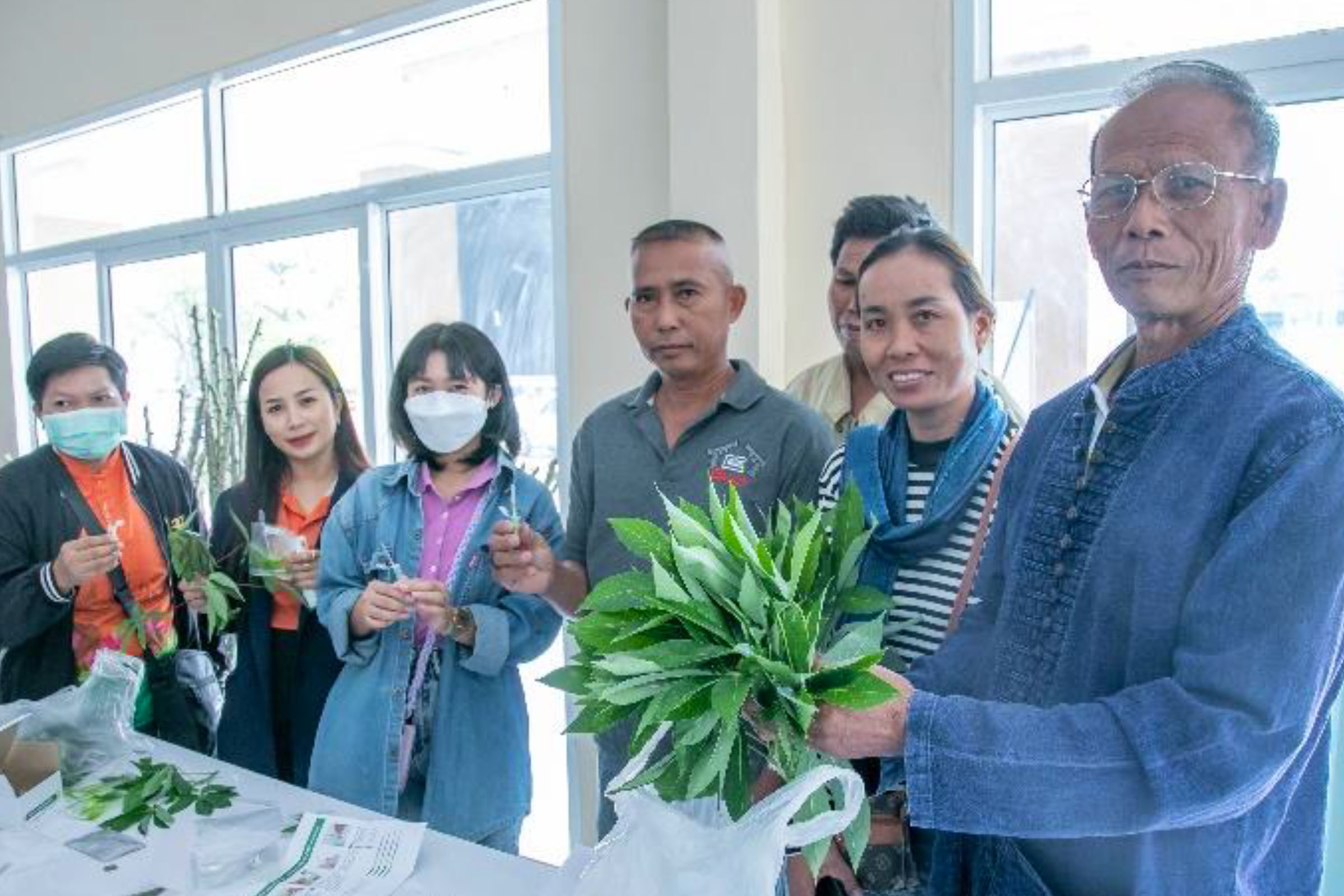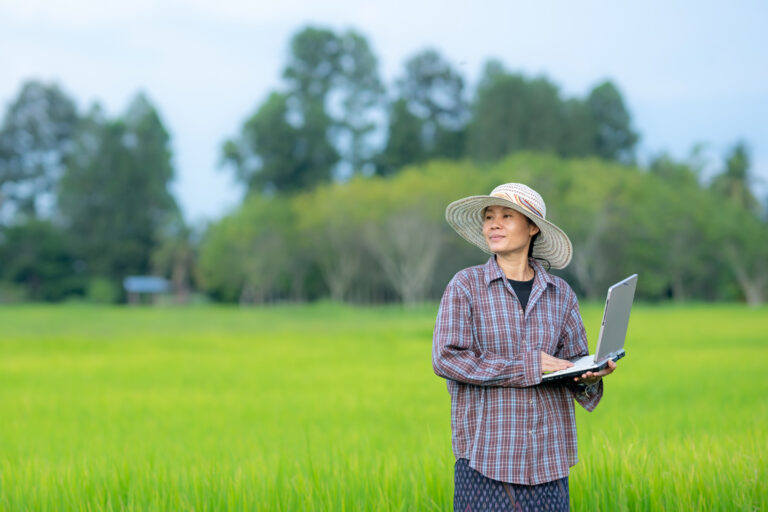
The Chaiyaphum Experiment: a #thaiRAIN success story
The problem
For many cassava farmers in Thailand and the Greater Mekong Subregion, Cassava Mosaic Disease has been a rapidly growing concern since its outbreak in 2018. The disease is economically lethal, as affected plantations often suffer more than a 50 percent drop in yield due to CMD infections, and any infected cassava must be burned according to official recommendations. Currently, experts suggest that the main measure for CMD mitigation in Thailand is the multiplication and use of clean stems for production. To achieve that goal, various innovations have been made available. However, many of these solutions require costly equipment in laboratories.
Today, the only solution that can be used by individual farmers is the Immuno-Chromatographic strip test, developed by Thailand’s National Center for Genetic Engineering and Biotechnology (BIOTEC), a partner of the USDA Thailand Regional Agriculture Innovation Network project (#thaiRAIN). BIOTEC and #thaiRAIN have been working together to develop a scale plan for this innovation since mid-2023. The first step was to assess its technical functionality. According to BIOTEC’s validation research, the ICG strip test can provide a highly accurate diagnosis (96%) of CMD. The next step was to assess market feasibility and attract partners to sell the innovation at scale.
In collaboration with USDA-funded Creating Linkages for Expanded Agricultural Network (CLEAN) project in Laos, #thaiRAIN and BIOTEC introduced the ICG strip test technology in Laos at a jointly organized event titled “Diagnostic Technologies for Sustainable Management of Cassava Mosaic Disease to Cassava Smallholder Farmers in the Mekong Region” in July 2023. The technology was well received by farmers in Laos and also caught the interest of Sky Vision, a Lao company working in cassava production, processing, and export. This interest led to their purchase of 500 strips, which #thaiRAIN and BIOTEC facilitated.
Rethinking the business model
For technology adoption, the philosophy of #thaiRAIN is founded on finding an appropriate business model that involves value chain actors such as input suppliers, aggregators, and/or processors to take ownership of marketing and sales for the innovation. This market-driven methodology will result in stronger sustainability than directly providing farmers with innovations for free.
While the purchase of ICG test strips by Sky Vision in Laos was #thaiRAIN’s first commercial transaction for a project-identified innovation that was successful, it is not yet a cause for celebration. The project identified a need to invest additional effort to create a sustainable business model that has the potential to reach thousands of cassava farmers.
In the latter half of 2023, #thaiRAIN and BIOTEC jointly reviewed the existing business model of the ICG test strip. The cost of 100 Thai baht per strip (approximately $3 USD) presented a barrier to smallholder farmers, as the recommended dosage is as much as 120 strips per hectare to meet the desired sampling rate, according to BIOTEC’s technical guidance. Farmers, as direct users of the strip, were easily ruled out as potential customers. #thaiRAIN decided that a new business model was needed — one that targets market actors with a higher stake in cassava production and larger amounts of working capital to invest in improved production at scale.
Here comes the RAIN
On Aug. 28 2023, the president of the Chaiyaphum Farmer Council sent a letter to BIOTEC that included a list of 68 CMD-affected farmer members, requesting training on the ICG strip test. BIOTEC immediately contacted #thaiRAIN. #thaiRAIN took the lead in organizing a training event, which included an interactive forum discussing CMD and its impact, a hands-on demonstration of the ICG strip tests for farmers working in small groups, and a focus group discussion on how various stakeholder groups perceived this innovation. In total, 50 farmers, 10 representatives of local starch factories, and 23 local government officials attended.
Overall, the event was a success. Farmers and stakeholders were impressed with how well the ICG strip test worked, and the event was live-streamed on the Chaiyaphum Farmer Council’s Facebook page. The clip of the demonstration section was carefully filmed for future use to disseminate to other groups.
The philosophy of #thaiRAIN is founded on finding a viable business model that involves value chain stakeholders.
The 99 Box Campaign
At the event, William Sparks, chief of party of #thaiRAIN, announced that the project would provide a “buy one, get one” match for any purchase of the strips to stimulate adoption at scale, which would increase farmer productivity, reduce negative environmental impacts, and expand trade. The top-up, the “99 Certificate,” is aimed at enticing early adopters to buy and test the strips.
Two local starch factories expressed interest in participating in the 99 Box Campaign. The factories are now determining how best to integrate the strips into their cassava supply chain. #thaiRAIN will follow up with these companies to evaluate successes and challenges with the factory-led distribution model during the 2023-2024 agricultural year.
The Chaiyaphum workshop culminated in a happy ending for all participants, notably the launch of #thaiRAIN’s 99 Certificate incentive program to encourage stakeholders to adopt ICG test strips, as well as future #thaiRAIN-supported climate-smart innovations and technologies.
Related Projects

